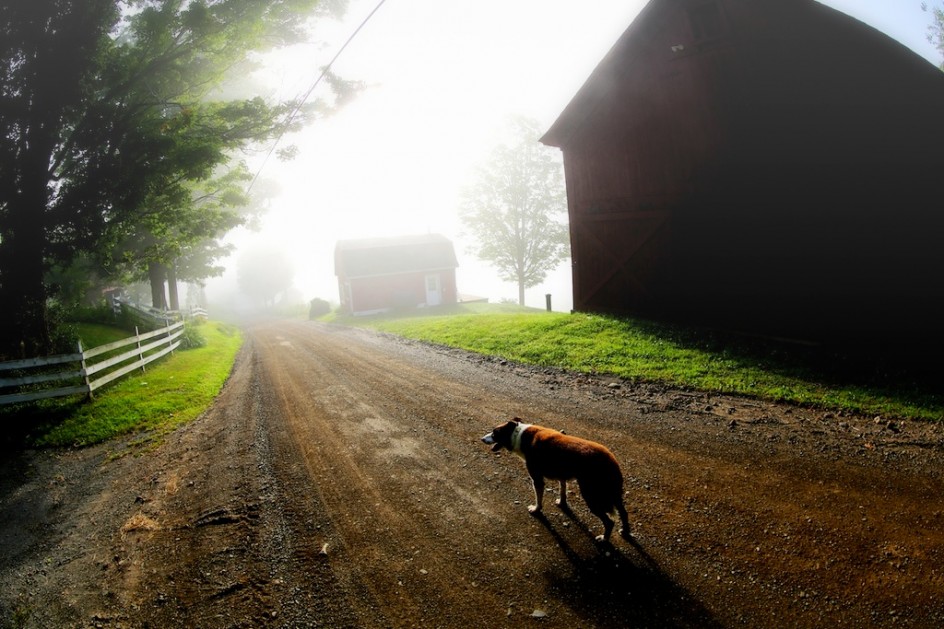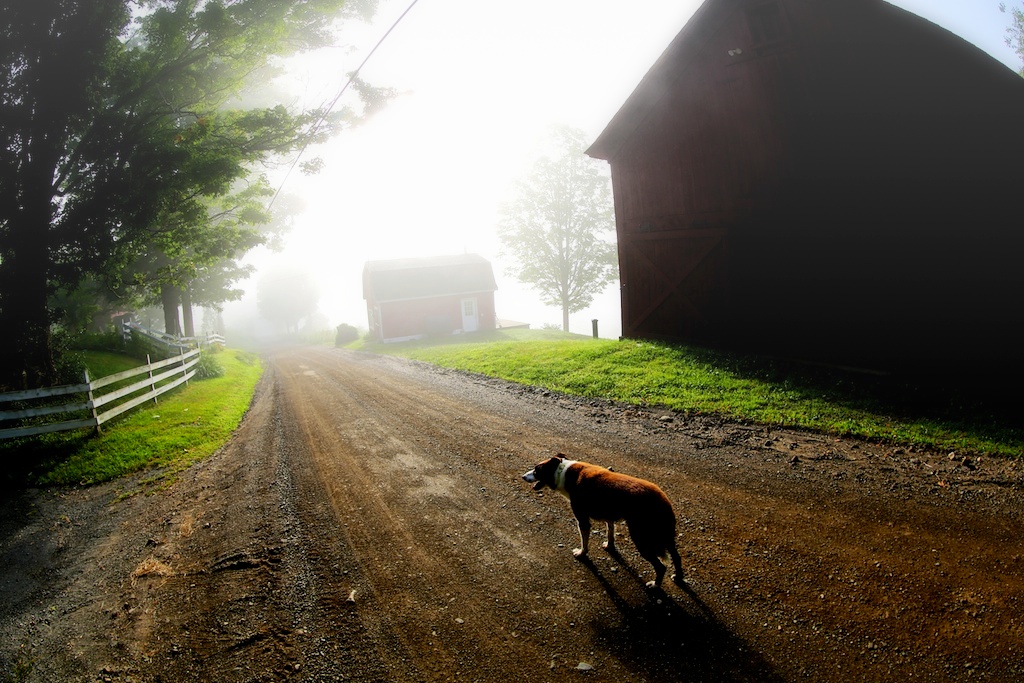
More than a decade ago, when I wrote “The New Work Of Dogs,” a non-fiction book about the rapidly intensifying emotional work dogs were doing for and with humans, I began researching one of the most powerful emotions in the human-animal spectrum, the animal fantasy. It is believed to be intense in the relationships many people, for example have with horses and pets, the fantasies many people have about the kind of friends they imagine their dogs to be, the emotionally challenging experience – also intensifying – of animal rescue.
Most people believe these fantasies – there is often a sexual or emotional longing related to them – are about the animals but the three groundbreaking and brilliant researchers I have followed for years – Dorothy Burlingham, the late British analyst; Anna Freud, the sixth and last child of Sigmund Freud, and John Bowlby, the father of Attachment Theory believed the fantasies are about us, about who we are, not who they are. All three of these great scholars of the mind studied animal fantasies and wrote about them. There is perhaps no part of the human-animal bond people resist learning about more than animal fantasies. It is uncomfortable to think our relationship to the animals around us comes from anything but pure love, that it has little to do with our own emotional histories. Nobody wants to see their love of their horse in relationship to their mother or father. People resist looking at the sources of these fantasies, they are often too deeply enmeshed in them.
Bowlby, Freud and Burlingham were different, all studied different aspects of the human mind, but all three agreed that in almost every case the animal fantasy is a projection of what the human wants and needs in a relationship, and quite often did not get from their biological family or their spouses and lovers. The need for love and connection are very powerful and animals offer an accessible template for people to find both. Animals, especially domesticated ones are dependent upon us, they can’t quit or speak back to us or leave us. They become what we need them to be, that is literally how they survive.
Burlingham wrote that the young child, when faced with the inevitable separation from his or her mother, father or family, takes an imaginary animal as his intimate and beloved friend, and in this way, overcomes loneliness and rejection. “The animal offers the child what he is searching for: faithful love and unswerving devotion. There is nothing that this… animal cannot understand; speech is quite unnecessary, for understanding comes without words. These animal fantasies are an attempt to substitute for the discarded and unloving family an uncritical but understanding and always loving creature.”
Our fantasies about animals are born when we are young and needy, and they grow and evolve in our lives in varying degrees, depending on how willing we are to substitute animal affection for human connection, and how much self-awareness we choose to pursue. It is no accident that I saw in Rose the most faithful, loving and protective companion, qualities I have sought from people my whole life, traits that were absent from my biological family. I was alone on the farm, as I was alone in childhood, but her I found a creature to protect me or so I believed, so I needed to believe.
Maria’s powerful instincts for nurturing, her sensitivity to the animals around her, her reluctance to impose any pain and discomfort on them are all qualities she has sought in her life, and not always found. She is poignantly encouraging and supportive of the animals and she is well aware that she longed for encouragement her whole life.
In my own spiritual and psychological explorations, I have come to see that these fantasies are very powerful, and for me, animal fantasies propelled me to change my life and shaped my writing and photography but ultimately they were not an acceptable or satisfying substitute for human connection – love, friends, community. While animals remain a central part of my life, I am grateful I came to understand this in time and my perspective about them is different.
To put it simply, and all three of these great minds agreed about this, animal fantasies show us what we want and what we need, they are living representations of our needs and wants. The person who talks about a horse the same way most people talk about human lovers is not loving the horse – he or she is seeking the kind of love seen in their fantasies about the horse, or the dog, or the cat. As much as we emotionalize them, most animals are not intelligent in human terms, they do not have our language, vocabulary or many narrative stories. It is simply not possible for them to understand us in the way many of us so desperately want and profess to believe. And understanding that is important, for them and for us. There is a difference in my mind between love that is knowing and love that is blind.
These fantasies are often mirrors of what it is we long for and often did not or do not yet receive in our insecure world, from our earliest consciousness throughout the stages of life. Animal fantasies are very powerful, they are common, and in my own experience, they are deepening beyond the imagination of Dorothy Burlingham as our society becomes more polarized, disconnected and complex.
Everywhere I go, I see and hear people falling in love with the animals around them, in many cases preferring them to human beings and projecting every kind of passion and commitment and emotion on them. The notion of the rescued companion animal, once rare in our culture, and now epidemic, has further emotionalized our relationship with all animals, especially domesticated animals and pets. We are coming to see animals in terms of piteous and desperate need and utter dependence. This enables us to offer the love and projection we would like to have. This was the reason I stopped calling any of my animals “rescues,” because I felt the term has nothing to do with them, it was all about a need in me.
I am fascinated by animal fantasies, and hope one day to write a book about them. Last night I was re-reading Burlingham’s powerful account of a young girl with a disturbed relationship with her mother, and in her anger and sorrow the girl withdrew to a fantasy of possessing a dog who would love her devotedly, who would not question or criticize her, who would have understanding even for her wicked actions, hostile thoughts, irresponsible actions. The dog was aware in her mind of her conscious wish to love, and would never stop loving her. When she grew into adulthood, she acquired a dog and she described her and saw her in terms of the greatest love and devotion and loyalty, even though she never connected those feelings with her own childhood.
it is evident, wrote Burlingham, that the imaginary dog replaced the mother whom she could not love, and who, she believed, could not love her. The woman could not live without love, wrote Burlingham – none of us can – and the dog gave her what she longed for, at least in fantasy. Another woman, wrote Freud, spoke increasingly of her horse in sexual terms, whispered love poems to him, almost literally described him as a lover. In doing so, said Freud she was expressing the most basic thing, the universal human longing for intimacy. It is perhaps easier to fantasize about animal than do the hard work of understanding oneself. It may also be that these fantasies are acceptable substitutions for uncertain human behavior – that is not for me to say. The horse isn’t going to break up with his human, or find another one.
For me, it is important to understand the source of my connection to animals, and I am fairly clear now that is has always been a kind of projection of what I wanted and needed. Animals finally led me to human connection, to Maria, and I see that my emotional relationship to animals has changed radically. It has calmed, softened, become more loving, I think, less intense. I think I see animals more clearly all the time for what they are, not for what I need and want them to be. I don’t need them to love me, be my soulmate, my therapist, my most intimate friends. I just need them to be. They are after all pretty simple creatures.
I have come to understand that their love for me stems as much from their need for food and attention and work as it does for their deep appreciation of my emotional make-up. That does not diminish the relationship for me, quite the opposite. For me, that is the very definition of authenticity, one of the foundations of love.

